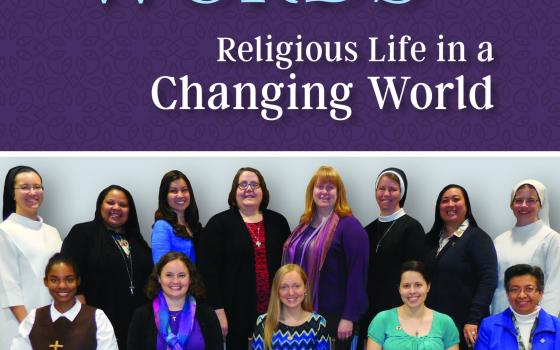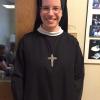In Our Own Words: Religious Life in a Changing World
Edited by Juliet Mousseau and Sarah Kohles
Published by Liturgical Press; 238 pages
$29.95
Editor's note: Global Sisters Report is offering condensed excerpts from three chapters of the newly released book In Our Own Words: Religious Life in a Changing World, a collection of essays by young women religious. Selecting which chapters to highlight was challenging, as each offers thoughtful insights into religious life and spiritual growth. Several writers are regular or occasional contributors to GSR. In the end, we decided on samplings that explored particular themes by sisters who have not written for GSR to offer new voices. This is the second of the three. Find all the excerpts here.
To live effectively in an intergenerational community, whether in the world or in religious life, we as young people need certain practical skills. First, we need to see and welcome Christ in each other. Christ, our teacher and Lord, always wants to speak to us through others. Consequently, we need to be open to learn from our elders. Pope Francis gives us clear advice: "Ask them so many things, listen to them, they have the memory of the history, the experience of life, and for you this will be a great gift that will help you on your way." In listening with the ear of our hearts, we can learn how our fellow sisters have faithfully lived our charism and mission over decades of life in community. Their stories can tell us more than a formation class or article ever could.
As we receive from our elder sisters, so too we need to be willing to reverse mentor to share our gifts and skills of our youth with them. Through meaningful conversation, we can share with them what it is like to discern a vocation today. We can share our joys and struggles growing up in today's culture and how difficult it is to find our path in life with so many options before us. It can be comforting for us to see that our elders don't have everything in religious life figured out and that living with questions is normal. It leaves the door open for the Spirit to work. By entering into relationship, we as young sisters can deepen our roots in our communities, hone our listening skills, grow in compassion for those who are different from us, and see and serve Christ in new situations. As we age, our elders give us valuable models for how to age well. This spirituality can help us to go deeper, to go inward, and to surrender fully to the God who calls us and sustains our "yes" as women religious. Elders can teach us how to forgive ourselves, to find our identity in who we are rather than what we do, and to be grateful for who we are together as community. As Sr. Janet Malone eloquently explained, "Gratitude involves satisfaction with life, with oneself, with one's congregation and with the world. I am enough. I am good enough. I have enough."
As with each generation, so too does each culture have dignity and value. Whether a sister comes from an impoverished village in Tanzania or a wealthy city in Europe, we are all in community to seek God in and through our diverse cultures together. Our rich diversity is fundamentally connected to the moment of Pentecost. As disciples of Jesus, we can stay huddled in fear, wondering where the next threat will come from, or we can allow the Spirit to breathe on us, calling us forth in our diverse unity. For instance, when a new sister arrived in my community from Asia last year, I had the graced opportunity to welcome her as my sister. When each of us responds to the call of radical hospitality, we can bring our charism to life here and now and not allow it to grow stagnant. Through this radical welcome we meet our God who, like our charism, longs for life and always wants to meet us in the present moment.
[Madeleine Miller entered the Missionary Benedictine Sisters of Tutzing in 2008. She lives near Sioux City, Iowa, teaches theology, and does campus ministry at Bishop Heelan Catholic High School. She made her final monastic profession in 2015 after spending time in Olinda, Brazil. Excerpt is from Pages 116-117 and 119 and is used with permission from Liturgical Press.]

